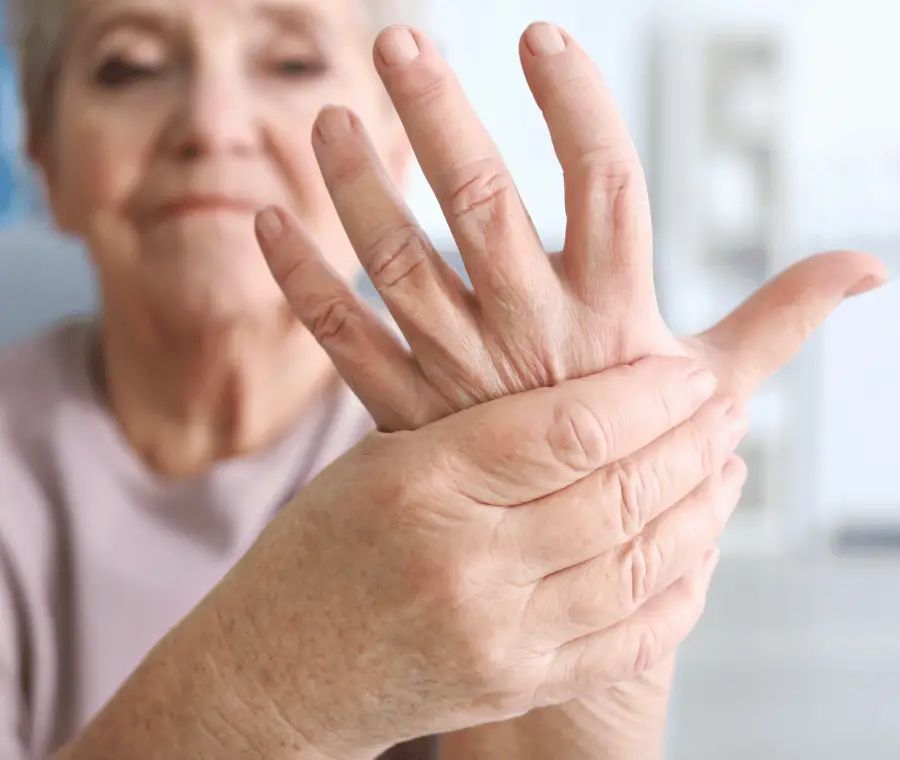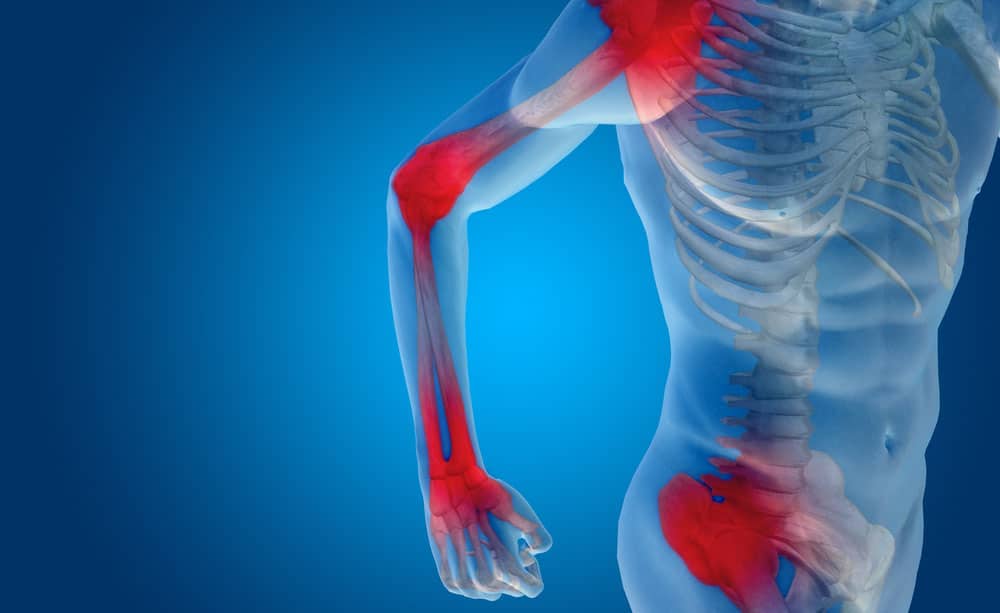The contraceptive pill has been found to potentially decrease the risk of rheumatoid arthritis, whereas hormone treatments associated with menopause might elevate this risk later in life. A recent study involving over 200,000 women in the UK, conducted by researchers from Uppsala University, has unveiled connections between the usage of sex hormones and the likelihood of developing rheumatoid arthritis.
These findings, shedding light on the intricate relationship between hormonal interventions and rheumatoid arthritis risk, have been detailed in the journal Rheumatology.
For further insights into hormone treatments and their implications, you may explore the resources available at Bio Hormone.
Contraceptive pill to reduce the risk of contracting rheumatoid arthritis
“Our research shows that using the contraceptive pill protects against rheumatoid arthritis. We saw that among women taking the contraceptive pill, the risk of developing rheumatoid arthritis was 19% lower than among those who had never taken this type of drug. Even after the If women stopped taking the contraceptive pill, we found an 11% lower risk of developing rheumatoid arthritis,” says Fatemeh Hadizadeh of the Department of Immunology, Genetics and Pathology at Uppsala University, lead author of the study.
The study, based on data from the UK Biobank, also looked at whether hormone treatment during menopause could influence the risk of developing rheumatoid arthritis later in life. The results showed that women treated with hormones had a 16 percent greater risk of rheumatoid arthritis than those who had never received such treatment.
One possible explanation for the notable difference between the risk of using the contraceptive pill and that of hormone therapy during menopause is that the two drugs are simply made up of different types of hormones and are not taken in the same doses. The fact that they are used at different times in a woman’s life can also affect the risk of disease. Physiological changes that occur after menopause, when the ratio of women’s natural hormones changes, can also impact how women are affected by different hormone medications.
Rheumatoid arthritis is a chronic inflammatory disease that mainly leads to joint swelling and pain. Other organs, such as the skin, eyes, lungs, heart and blood vessels, may also be affected.
“Our study represents a step forward in understanding the complex interaction between hormone use and rheumatoid arthritis. The findings could lead to more informed recommendations for women who are at elevated risk of rheumatoid arthritis.
The new knowledge could also play a role in the development of new drugs,” says Weronica E Ek, researcher at the Department of Immunology, Genetics and Pathology at Uppsala University, who led the study.
A further large study of women with rheumatoid arthritis found that those taking oral contraceptives or hormone replacement therapy (HRT) were more likely to achieve remission.
Led by the University of South Australia, researchers established the link between remission, reproductive status and sex hormone use, after evaluating data from 4,474 female patients with rheumatoid arthritis (RA) treated with the anti-inflammatory drug Tocilizumab and others immunosuppressive drugs.
The study revealed the following:
Pre-menopausal women (those who still had a regular menstrual cycle) reported fewer rheumatoid arthritis symptoms than peri-menopausal women (irregular or infrequent periods) or post-menopausal women with rheumatoid arthritis.
Patients with rheumatoid arthritis who used hormone replacement therapy or oral contraceptives in combination with medications prescribed for rheumatoid arthritis were much more likely to experience remission.
Post-menopausal women, who made up 63% of participants, of whom only 8% used HRT, were less likely to achieve remission of rheumatoid arthritis than pre-menopausal women.
The findings suggest that female sex hormones may play an important role in improving the outcomes of women taking medications prescribed for rheumatoid arthritis.
Remission rates were higher in some groups of women taking HRT or oral contraceptives at the same time as rheumatoid arthritis medications, and in fact, rheumatoid arthritis remission was twice as high in peri-menopausal women.

Lead researcher UniSA Associate Professor Michael Wiese says it is premature to say that hormone replacement therapy and oral contraceptives have a protective effect against rheumatoid arthritis, but the study has revealed a potential connection.
“We examined whether women using oral contraceptives or HRT had different outcomes when treated with rheumatoid arthritis drugs. We found that women entering menopause who were not taking HRT or contraceptives were less likely to achieve remission than women with rheumatoid arthritis still on regular hormone replacement therapy. menstrual cycle,” says the prof. Wiese Assoc.
“The decision to use hormone replacement therapy is complex,” says Prof. Wiese Assoc. “It improves menopause symptoms, but can modify the risk of some cancers and cardiovascular diseases. This study suggests that it may also be useful for women with rheumatoid arthritis, but the decision to use it requires a thorough discussion with a primary care physician because every woman has different risk factors.”
Rheumatoid arthritis is an autoimmune inflammatory condition that is four times more common in women younger than 50 than in men of the same age group and is twice as common in women older than 60.
Compared to men, rheumatoid arthritis in women is more aggressive and the prognosis is worse.
“The peak age of onset of rheumatoid arthritis among women is 45-55 years, corresponding to a decline in estrogen as women typically enter a peri-menopausal period, where their periods become irregular.
“Additionally, an increase in proinflammatory proteins occurs at the onset of menopause.”
Early menopause, or menopause that occurs in women under 45, increases the risk of developing rheumatoid arthritis, and the incidence also increases markedly in post-menopausal women.
In contrast, younger women with rheumatoid arthritis who become pregnant experience a 50% drop in inflammatory activity.
The study was published in the latest issue of Rheumatology.
Early post-menopausal women (post-menopausal women aged <45 years) made up 5% of participants, 25% were pre-menopausal (with still regular menstrual cycles), 9% were peri-menopausal , with intermittent and irregular periods and 63% post-menopause.
There. Rheumatoid affects up to 2% of the world’s population and is mainly genetic. It mainly causes joint diseases, but can also affect the entire body, including organs.
There. Rheumatoid is a chronic inflammatory disease that can affect more than just the joints. In some people, the condition can damage a wide variety of body systems, including the skin, eyes, lungs, heart, and blood vessels.
Signs and symptoms of a. rheumatoid may include painful, warm, and swollen joints; joint stiffness that usually worsens in the morning and after inactivity; fatigue; fever; and loss of appetite. About 40% of people affected by a. Rheumatoid also has signs and symptoms that do not involve the joints.
Smoking is linked to the development of a. rheumatoid, particularly for people who have smoked for 20 years or more. Smokers with a. rheumatoid have a higher risk of increased disease severity and may be less likely to experience remission. Smoking also decreases the effectiveness of some medications used to treat a. rheumatoid.

Quitting smoking is one of the best things you can do for your health. In addition to increasing the risk of developing a. rheumatoid, smoking increases the risk of developing lung cancer and other cancers; cardiovascular disease and stroke; and diabetes.
The researchers found similarities in the bacterial composition of the mouth between patients with early rheumatoid arthritis and those at risk of developing the disease, compared to healthy individuals who were not at risk. The findings come from a study published in Arthritis & Rheumatology.
Patients and at-risk individuals had a greater relative abundance of potentially proinflammatory bacteria in the mouth, suggesting a possible link between oral microbes and a. rheumatoid.
” Prevotella and Veillonella , both gram-negative anaerobes, had a higher relative abundance in the saliva, and Veillonella was also a higher relative abundance in the tongue coating, of both patients with a. early rheumatoid disease than in at-risk individuals compared to healthy controls,” the authors wrote.
A recent analysis of a US commercial insurance database found that adults with a. rheumatoid had a lower risk of developing type 2 diabetes than other individuals, including those with other types of arthritis.
The analysis, published in Arthritis Care & Research, compared adults with rheumatoid arthritis to four other groups: individuals from the general population without a. rheumatoid, individuals with hypertension, individuals with osteoarthritis, and individuals with psoriatic arthritis. A total of 449,327 people were included.
During an average of 1.6 years of follow-up, the rate of developing type 2 diabetes was lower in the group with a. rheumatoid (7.0 per 1,000 person-years) and highest (12.3 per 1,000 person-years) in the hypertension group. After the adjustments, the a. rheumatoid was associated with a 24% to 35% lower risk of developing type 2 diabetes compared with the other four groups.

“While systemic inflammation in a. rheumatoid increases the risk of cardiovascular disease, our results unexpectedly show that having a. rheumatoid disease itself does not confer an increased risk of type 2 diabetes compared to four different comparison groups,” said senior author Seoyoung C. Kim, MD. , ScD, MSCE, from Harvard Medical School.
“Since all patients with a. rheumatoid disease included in our study were treated with at least one disease-modifying antirheumatic drug, our study is not able to test the association between no treatment or undertreatment for rheumatoid disease. rheumatoid disease and the risk of type 2 diabetes.”
#Rheumatoid #arthritis #contraceptive #pills #reduce #risk